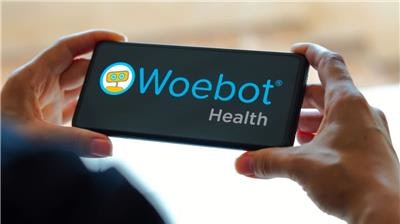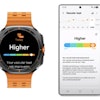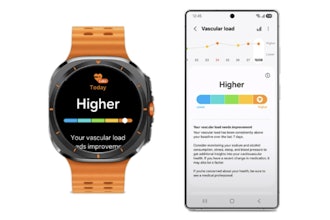
The conversation around Artificial Intelligence these days appears to be mostly negative. Very few people have anything positive to say about chatbots of any variety. But a recent 60 Minutes segment reveals one area where they might be exactly what the doctor ordered.
In this case, the medical professional in question would be research psychologist and technologist Alison Darcy.
The CBS News segment featuring Darcy reveals how generative AI might be changing the face of mental health treatment. This scenario has emerged for several reasons, namely cost and a lack of access to professional help.
CBS Chief Medical Correspondent and Professor of Medicine at the NYU School of Medicine, Jon LaPook talked to Darcy and shared how artificial intelligence (AI) chatbots may assist what he calls a "critical shortage of human therapists and a growing number of potential patients."
Getting Help
In 2017 Darcy designed a chatbot app, "Woebot Health" to serve as an interactive version of herself. The app provides access to those whom she — or other therapists — wouldn't otherwise reach. "It's not about getting people in the clinic," says Darcy. "It's about getting some of these tools out of the clinic."
Woebot Health describes itself as a "mental health app…to help you work through the ups and downs of life." The platform also provides testimonials from users. One of them discusses her relationship with the virtual professional, which she started shortly after the Covid-19 pandemic. "I actually feel like I have a little bond with Woebot." says client Maria. "I feel like he's my little friend."
So Far, So Good
New York Times guest essayist, anthropologist, and mental health specialist Barclay Bram also experimented with Woebot. Initially skeptical, he admits that although he wasn't that impressed by Woebot's responses to pressing daily matters, it did help him. "Its guidance was practical and grounded to the point of feeling obvious," writes Bram, "but through repetition and practice, it did start to amount to something more than just some prosaic words."
The mental health problem has long been a talking point across news and current affairs platforms. A Gallup essay in 2021 posed the question: "What if the next global health crisis is a mental health pandemic?" Naturally, the COVID-19 factor cannot be ignored in this conversation: over 40% of Americans reported anxiety or depression symptoms during that period.
Bad Signs for Younger Generations
Furthermore, a 2022 CNN and Kaiser Family Foundation ( KFF ) survey points toward an alarming trend in young American adults, 18-29 years old. This demographic reports the highest concern for their mental well-being and were also more disposed to seek help but not find it. Furthermore, half described feeling "always" or "often" anxious over the previous year.
The Multidisciplinary Digital Publishing Institute ( MDPI ) examined the intersection of AI and mental health therapy last year. The rise of AI in mental health treatment involves big data, machine learning (ML) algorithms, and natural language processing (NLP). By combining these with psychology literature and research, AI chatbots provide an instant response to people's hang-ups, albeit remotely and without human interaction.
An American Psychological Association ( APA ) review confirms AI tech will be a game-changer for mental health needs. Yet, associate professor of psychology at the University of California, Stephen Schueller, is less than convinced. "Evidence suggests that people benefit most from digital therapeutics when the apps are used in conjunction with some form of human support," says Schueller.
The Latino Question
There are further drawbacks to overcome, too. Access to psychological support in underprivileged communities is central to digital therapeutics' role. The largest non-white American demographic is Latino. Yet, a 2021 Frontiers in Digital Health journal review found the marketplace lacking in Spanish-speaking apps; only 14.5% of those available featured the second most spoken language in the United States.
It has since improved for those with Spanish as their mother tongue. Scheuller himself conducted a recent exploration using a system called SilverCloud, which has similar features to Woebot. His team utilizes the Spanish language version of the platform, employing local Spanish speakers to help Hispanic peers use the app. Schueller hopes that an integration of human support will yield positive results.
A Mexican Success Story
Another Spanish-language digital therapeutic is Yana (You Are Not Alone), a company out of Cancun, Mexico. The app uses varying features to address customers' emotional issues with daily tasks, such as chatbot verbalization sessions, activity checklists, and a gratitude journal.
At the time of writing, Yana had 13 million users across 35 countries. Founder Andreas Campos tells Bloomberg she thinks it would take another decade for artificial intelligence and psychology to interlace. ChatGPT's 2022 debut was the catalyst for Yana to advance with AI capabilities in 2023. Campos, too, is aware of the potential downside to non-human mental health support.
Walking a Fine Line
She must spend at least half her time on the ethical implications of her technology. "What keeps me up at night is that the AI could respond by saying something that could put someone at risk," she admits. "People who might not realize that the robot could make mistakes, that some things shouldn't be taken literally."
Nevertheless, the landscape is changing for mental health support; remote, digital AI therapy evidently has a place in the mental wellness market.
This article was produced by Media Decision and syndicated by Wealth of Geeks.






















